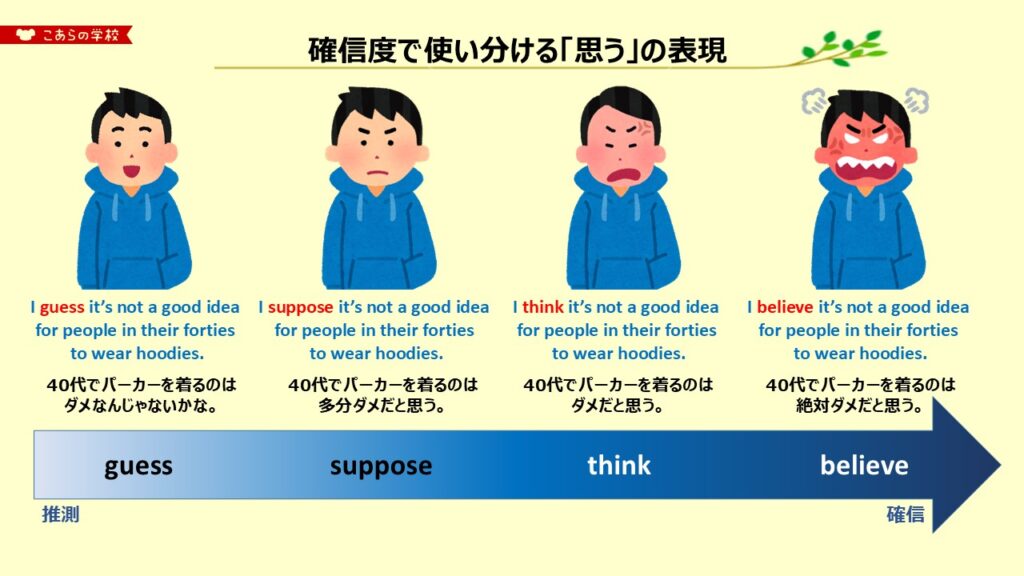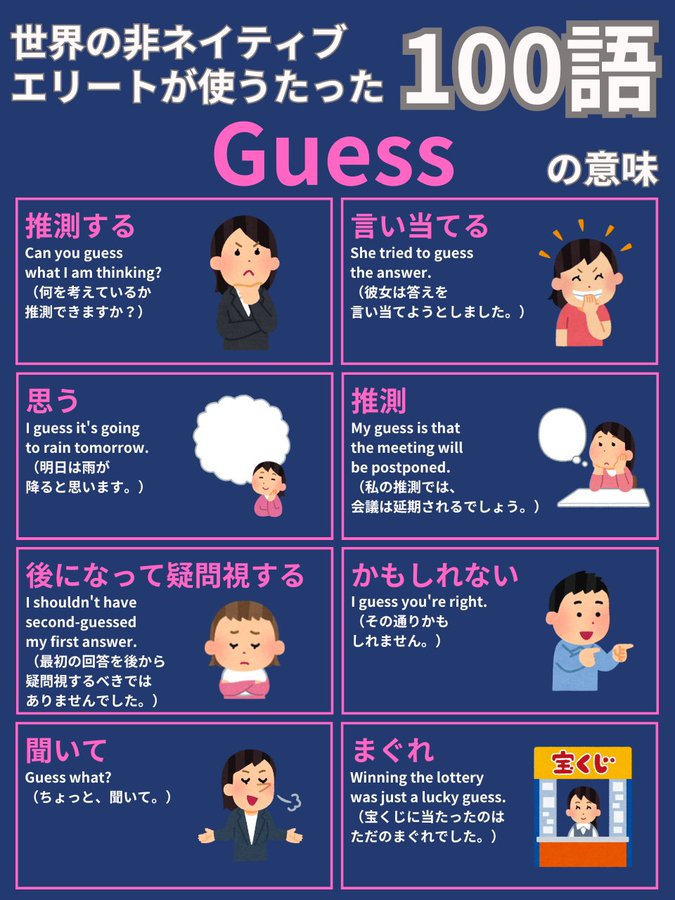He fainted with hunger and fatigue, but came to after a while.
彼は空腹と疲労で気を失ったが、しばらくして意識を取り戻した。
faint: 気を失う
疲労や衝撃、病気などの原因で一時的に意識を失うことを意味する。意識不明になる状態。
- He fainted from the heat during the parade.
- 彼はパレードの間に暑さで気を失った。
その他の意味
かすかな、ほのかな、ぼんやりした = vague
- A faint small: かすかなにおい
- I thought I heard a faint strange sound.: かすかに妙な音が聞こえた気がした。
fatigue: 疲労
極度の疲れや疲労を表す。身体的または精神的な過労を指し、医学的な文脈や日常会話でも使われる。
- I’m suffering from fatigue these days.: 最近疲れが取れなくて、困ってます。
- My fatigue disappeared after a good sleep!: よく眠ったら、疲れが取れました!
- I guess she is feeling a lot of stress and fatigue lately with her work and parenting life.: 僕が思うに、彼女は仕事と子育ての生活で、最近ストレスと疲労が溜まっているんだろう。
- ※I guessは、かなり確信度の低い(20%くらい)のときに使う


come to: 意識を取り戻す
気を失った後に再び意識が戻る状況に使われる。come toでセットで自動詞扱い。
- He came to and found himself in a hospital bed.: 彼は意識を取り戻し、病院のベッドにいることに気づいた。

Come to は奥深い
その他の意味
come to do: 〜するようになる
- My friend said that I’ll come to regret it if I rejected the offer.: このオファーを断ったら、公開することになると友人に言われた。
come to ~: 合計が〜に達する
- How much does it all come to?: 全部でいくらになりますか?
When it comes to: 〜に関しては
- When it comes to Pokemon, Alex is next to none.: ポケモンのことになると、アレックスの右に出るものはいない。
come to ~: 頭に浮かぶ、思いつく
- The idea of a time machine first came to me in 1955.: タイムマシーンの考えが最初に浮かんだのは、1955年のことだった。
After a while: しばらくして
具体的な時間を指定せず、ある程度の時間が経った後を表現する時に使う。
- After a while, the rain stopped and the sun came out.: しばらくすると雨が闇、太陽が顔を出した。

